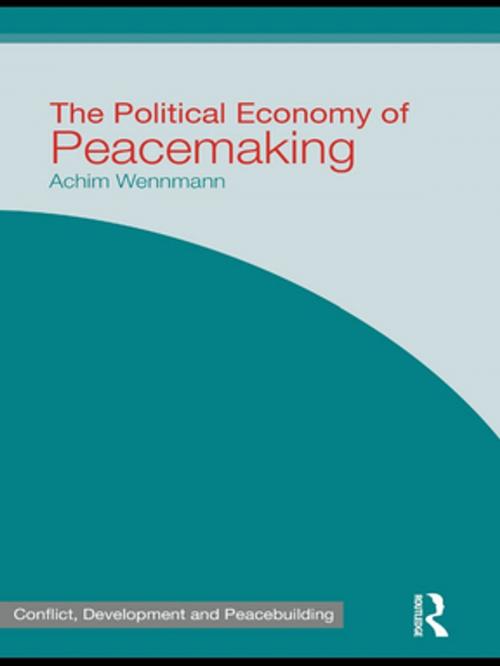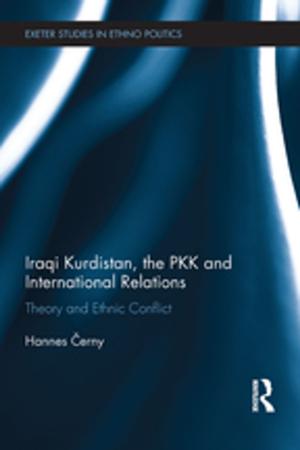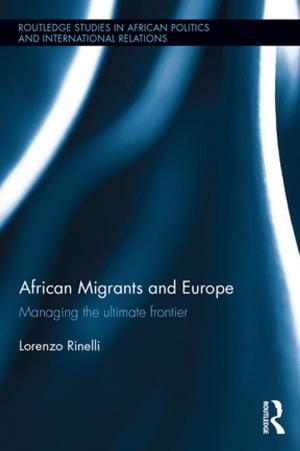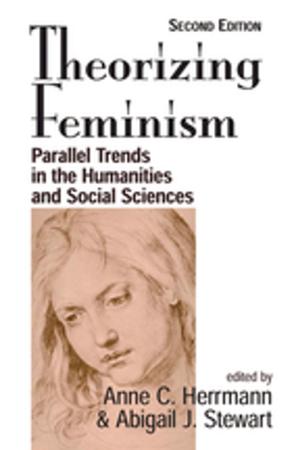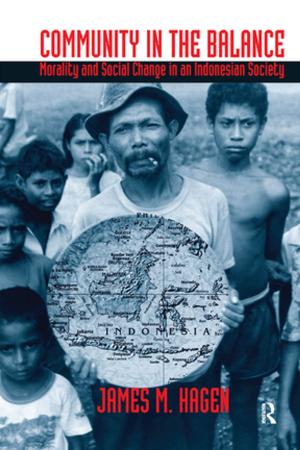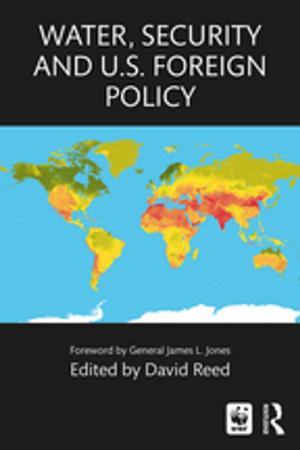The Political Economy of Peacemaking
Nonfiction, Social & Cultural Studies, Political Science, International, International Security, International Relations| Author: | Achim Wennmann | ISBN: | 9781136854613 |
| Publisher: | Taylor and Francis | Publication: | December 14, 2010 |
| Imprint: | Routledge | Language: | English |
| Author: | Achim Wennmann |
| ISBN: | 9781136854613 |
| Publisher: | Taylor and Francis |
| Publication: | December 14, 2010 |
| Imprint: | Routledge |
| Language: | English |
This book focuses on the economic dimensions of peace processes and examines the opportunities and constraints for assisting negotiated exits out of conflict.
Various works have addressed the economic characteristics and consequences of armed conflicts over the past two decades, including issues such as ‘blood diamonds’, natural resource wars, economically motivated armed violence, self-financing conflict, or the complicity of companies and state elites in conflict economies. However, rather than treating these issues as obstacles for peace, this book explores whether they can be opportunities for peacemaking by adopting a political-economy perspective.
The book looks at income sharing from natural resources as an opportunity for forward-looking peacemaking strategies, and the implications of deal-making in situations in which war economies and insecurity provide strongmen with disproportionate political and economic power. The book also highlights that peace processes are not necessarily about the rectification of a conflict’s ‘root causes’, but rather about what matters most to the main stakeholders at the moment when a peace process starts taking shape. Finally, efforts to establish a lasting peace need to go beyond the traditional set of actors associated with peace processes. The strategic involvement of donor agencies, companies, and diaspora communities can strengthen forward-looking peace processes.
The book will help both student and practitioner audiences to better understand armed conflicts and their belligerents, optimize the planning and management of peace initiatives, and shape expectations in peace agreements. It will be of much interest to students of peacebuilding, conflict studies, development studies, International Political Economy and International Relations in general.
This book focuses on the economic dimensions of peace processes and examines the opportunities and constraints for assisting negotiated exits out of conflict.
Various works have addressed the economic characteristics and consequences of armed conflicts over the past two decades, including issues such as ‘blood diamonds’, natural resource wars, economically motivated armed violence, self-financing conflict, or the complicity of companies and state elites in conflict economies. However, rather than treating these issues as obstacles for peace, this book explores whether they can be opportunities for peacemaking by adopting a political-economy perspective.
The book looks at income sharing from natural resources as an opportunity for forward-looking peacemaking strategies, and the implications of deal-making in situations in which war economies and insecurity provide strongmen with disproportionate political and economic power. The book also highlights that peace processes are not necessarily about the rectification of a conflict’s ‘root causes’, but rather about what matters most to the main stakeholders at the moment when a peace process starts taking shape. Finally, efforts to establish a lasting peace need to go beyond the traditional set of actors associated with peace processes. The strategic involvement of donor agencies, companies, and diaspora communities can strengthen forward-looking peace processes.
The book will help both student and practitioner audiences to better understand armed conflicts and their belligerents, optimize the planning and management of peace initiatives, and shape expectations in peace agreements. It will be of much interest to students of peacebuilding, conflict studies, development studies, International Political Economy and International Relations in general.
